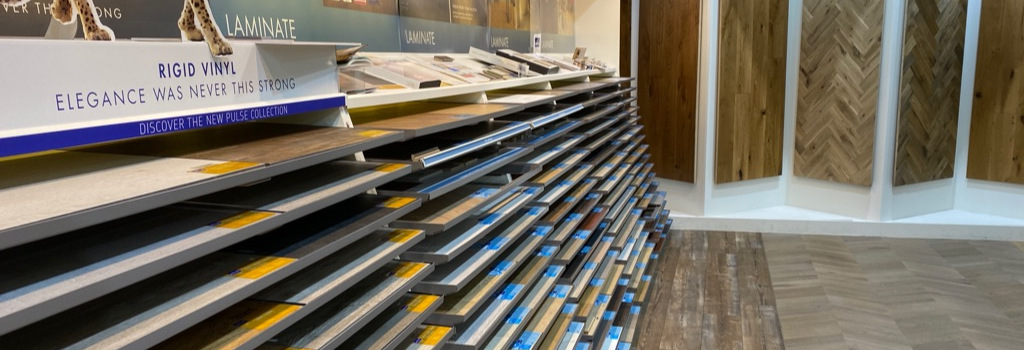Flooring Shop Warehouse Insurance: Storage & Distribution Facility Protection
Flooring businesses operating warehouses and distribution facilities face unique risks that require specialized insurance coverage. From high-value inventory storage to complex logistics operations, protecting your flooring warehouse requires comprehensive commercial insurance tailored to your specific needs.
Why Flooring Warehouses Need Specialized Insurance
Flooring warehouses present distinct challenges that standard commercial policies may not adequately address:
- High-Value Inventory: Flooring materials, from luxury hardwood to specialized tiles, represent significant financial investment
- Size and Weight Considerations: Large, heavy flooring materials require specialized handling and storage equipment
- Environmental Sensitivity: Many flooring materials are susceptible to moisture, temperature fluctuations, and humidity
- Distribution Complexity: Multiple delivery vehicles, loading operations, and customer collection points
- Seasonal Variations: Fluctuating inventory levels and increased activity during peak renovation seasons
Essential Coverage Areas for Flooring Warehouses
Stock and Inventory Protection
Your flooring inventory represents your business's lifeline. Comprehensive stock coverage should include:
- Fire and flood damage protection
- Theft and malicious damage coverage
- Environmental damage (moisture, temperature extremes)
- Contamination and spoilage protection
- Coverage for goods in transit between facilities
Buildings and Infrastructure
Warehouse facilities require robust building coverage including:
- Structural damage from fire, storm, or impact
- Specialized flooring and racking systems
- Loading bay and dock equipment
- Climate control and ventilation systems
- Security systems and access controls
Equipment and Machinery
Flooring warehouses rely on specialized equipment that needs protection:
- Forklifts and material handling equipment
- Cutting and processing machinery
- Packaging and wrapping equipment
- Computer systems and inventory management software
- Delivery vehicles and transportation equipment
Liability Considerations for Flooring Distribution
Public Liability
Customer visits, delivery operations, and public access create liability exposures:
- Customer injuries during warehouse visits or collections
- Property damage during delivery operations
- Third-party injuries from loading and unloading activities
- Damage to customer vehicles during collection
Product Liability
As a flooring distributor, you may face claims related to:
- Defective flooring materials causing property damage
- Incorrect product specifications or advice
- Installation failures due to product defects
- Slip and fall incidents related to flooring products
Employers' Liability
Warehouse operations present various employee safety risks:
- Manual handling injuries from heavy flooring materials
- Forklift and machinery-related accidents
- Falls from height during stacking operations
- Repetitive strain injuries from warehouse activities
Business Interruption Protection
Warehouse disruptions can severely impact your flooring business operations. Business interruption coverage should address:
- Lost Revenue: Income protection during facility closure or reduced operations
- Alternative Premises: Costs of temporary warehouse facilities
- Additional Expenses: Extra costs to maintain operations during disruption
- Supply Chain Disruption: Impact of supplier or customer facility damage
- Seasonal Considerations: Higher coverage during peak trading periods
Goods in Transit Coverage
Flooring distribution involves constant movement of valuable materials. Transit coverage should include:
- Delivery vehicle contents protection
- Loading and unloading coverage
- Theft from vehicles and temporary storage
- Damage during transportation
- Customer collection and return journeys
Cyber and Data Protection
Modern flooring warehouses rely heavily on digital systems requiring cyber protection:
- Inventory management system breaches
- Customer data protection
- Supplier information security
- Online ordering platform protection
- Business interruption from cyber incidents
Risk Management for Flooring Warehouses
Storage Best Practices
- Proper racking systems rated for flooring material weights
- Climate control to protect moisture-sensitive materials
- Segregation of different flooring types and finishes
- Regular inventory rotation to prevent deterioration
- Adequate spacing for fire prevention and access
Security Measures
- Comprehensive CCTV coverage of all areas
- Access control systems for staff and visitors
- Perimeter security and lighting
- Alarm systems connected to monitoring services
- Secure storage for high-value specialty flooring
Health and Safety Protocols
- Regular equipment maintenance and inspection
- Staff training on manual handling techniques
- Clear walkways and emergency exits
- Personal protective equipment requirements
- Regular safety audits and risk assessments
Choosing the Right Insurance Partner
Selecting appropriate warehouse insurance for your flooring business requires expertise in both commercial insurance and the flooring industry. Key considerations include:
- Industry Experience: Insurers familiar with flooring business risks
- Flexible Coverage: Policies that adapt to seasonal variations and business growth
- Claims Support: Rapid response for business-critical incidents
- Risk Management: Proactive support to prevent losses
- Competitive Pricing: Value for comprehensive coverage
Common Policy Exclusions to Consider
Understanding potential exclusions helps ensure adequate coverage:
- Gradual deterioration of flooring materials
- Damage from inadequate storage conditions
- Losses during non-business hours without security
- Damage from overloading storage systems
- Contamination from external sources


 0330 127 2333
0330 127 2333
